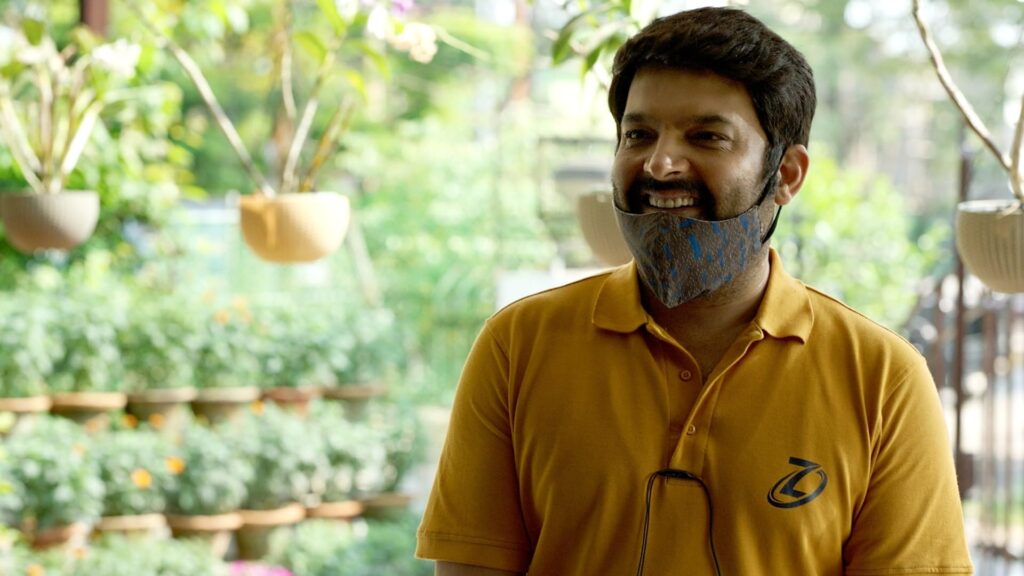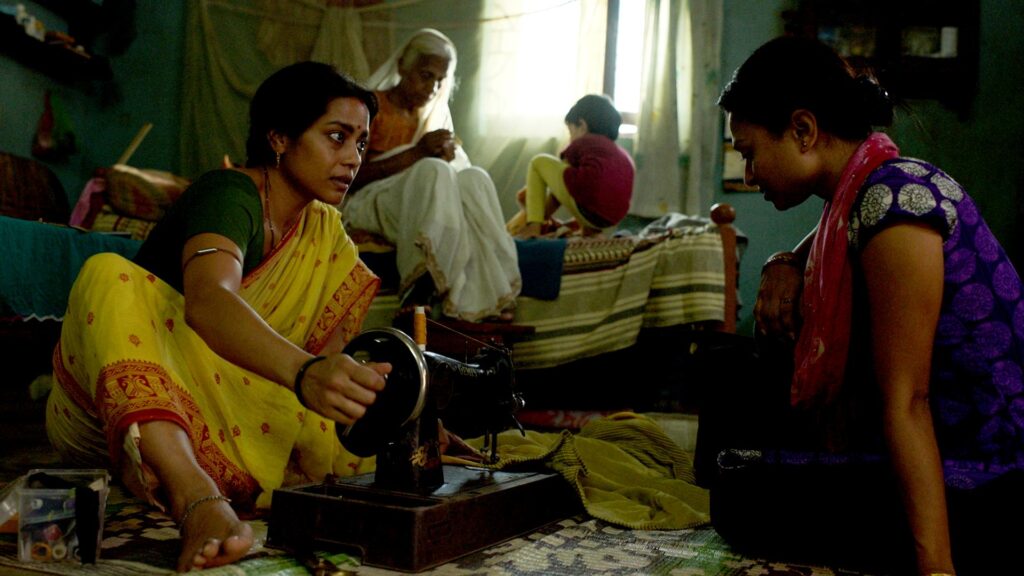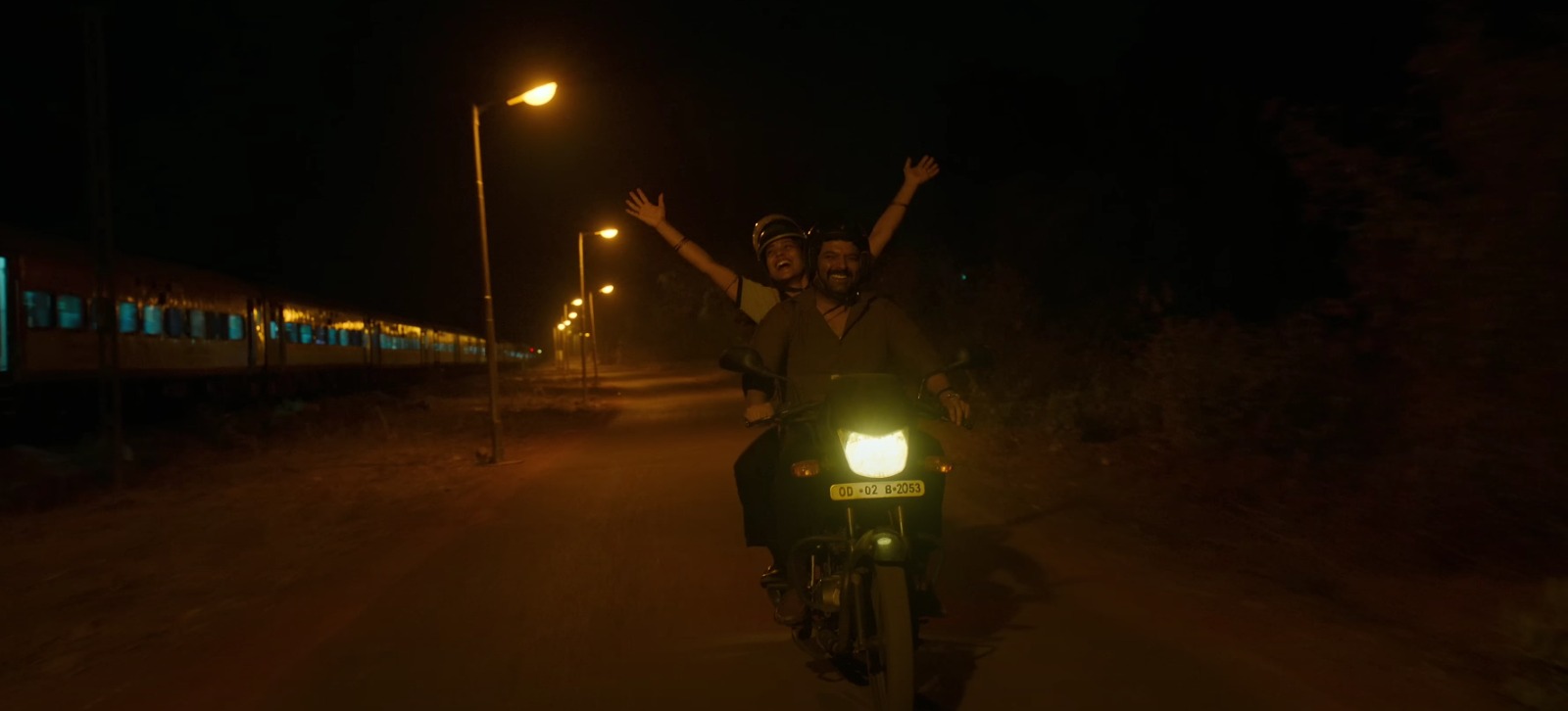On the surface, “Zwigato” is a story of Manas (Kapil Sharma), who, after his last job at a factory left, found himself in gig economies by becoming a food delivery rider in Bhubaneswar and his wife Pratima (Shahana Goswami), with odd small jobs to keep their family together. Shot against the backdrop of a post-pandemic world, Nandita Das directs an existential story of middle-class resilience gently layered with veiled social and political commentary that takes the film lightyears beyond the tyranny of a day-in, day-out family saga.
The first scene sort of shows Manas as an employee in some reputable company before the pandemic where he gets dumped into the gig economy. In contrast to his former existence, minimal exposition makes Das richly plunge us into Manas’s world of ticking delivery timers, arbitrary customer ratings, and cold app-based interactions. Within four days, the film portrays the financial struggle that Manas and Pratima face but takes us much deeper through the Bhubaneswar streets, onto which the urban poor fade into invisibility widening the economic gap.

The whole theme of invisibility is done cleverly without much melodrama. Manas turns into a ghost for the rich, to whom he has only curt orders and disapproving stares. One such scene is where he is not allowed to take an elevator to deliver something inside; another incident is of a Muslim colleague who does not want to get inside a temple. Through such small moments, the indifference and the restrictions placed on the working-class system by the fabric of society are depicted astutely. It would not be overstatement to mention that when a rich girl gives Pratima this look that says she smells simply because she is sweating, it does talk a lot about class bias. These are not tragic exceptions but everyday facts of life like the struggling in their weary round of life.

Sucharita Tyagi aptly noted the special thrust a comedian brings to drama and Kapil Sharma evidences that. He is raw and vulnerable with Manas, the authenticity of which peeps through far beyond the humor that he would appeal for. His facial contours betray a man fighting against forces stronger but intangible; all else he wants is to build stability for his family. The quiet bubbling frustration that underlies a cheerful facade adds a lot to his character depth. It was quite beyond expectations to see Sharma live these feelings so intensely, which otherwise would have made for a rather ordinary performance but turned into something profoundly moving.

Shahana Goswami, too, shines in Pratima. She embodies the quiet strength and vulnerability through which innumerable silent, mundane day-to-day lives of middle-class survival are carried on. It is an important part that complements Manas’s struggles, but here, too, Goswami keeps it hushed, taking care to reveal the grit behind the day-to-day gentleness, thus delivering a very delicate yet powerful portrayal.
Coming from a middle-class background and having been financially hard-stricken in the past myself, “Zwigato” really hit close to home in a way few movies do. It’s as if the journey of Manas and Pratima would resonate with anyone who’s been at war every day in choosing between survival and dignity. But the climax very poignantly captures the fundamental truth of middle-class life: in a world where hardships are constant, it’s necessary to find joy, even in the smallest things. Nandita Das leaves us with the message that, while life’s struggles continue, so must our reasons to keep smiling. In this quiet resolution, Zwigato finds beauty and resilience in the every day and reminds us, in the aftermath, that, indeed, life goes on.

Chaitanya Tuteja is someone who enjoys sharing his thoughts on books, movies, and shows. Based in India, he appreciates exploring different stories and offering honest reflections. When not reflecting on his favorite media, Chaitanya enjoys discovering new ideas and embracing life’s simple moments.


Наш веб-портал — сайт профессионального аналитической компании.
Мы предлагаем сопровождение по частным расследованиям.
Штат профессионалов работает с абсолютной дискретностью.
Нам доверяют поиски людей и выявление рисков.
Детективное агентство
Каждое обращение рассматривается индивидуально.
Мы используем эффективные инструменты и работаем строго в рамках закона.
Если вы ищете настоящих профессионалов — вы по адресу.
This website, you can access lots of casino slots from top providers.
Players can enjoy traditional machines as well as feature-packed games with high-quality visuals and exciting features.
If you’re just starting out or an experienced player, there’s always a slot to match your mood.
casino
Each title are available 24/7 and optimized for laptops and tablets alike.
All games run in your browser, so you can jump into the action right away.
The interface is easy to use, making it simple to browse the collection.
Register now, and dive into the excitement of spinning reels!